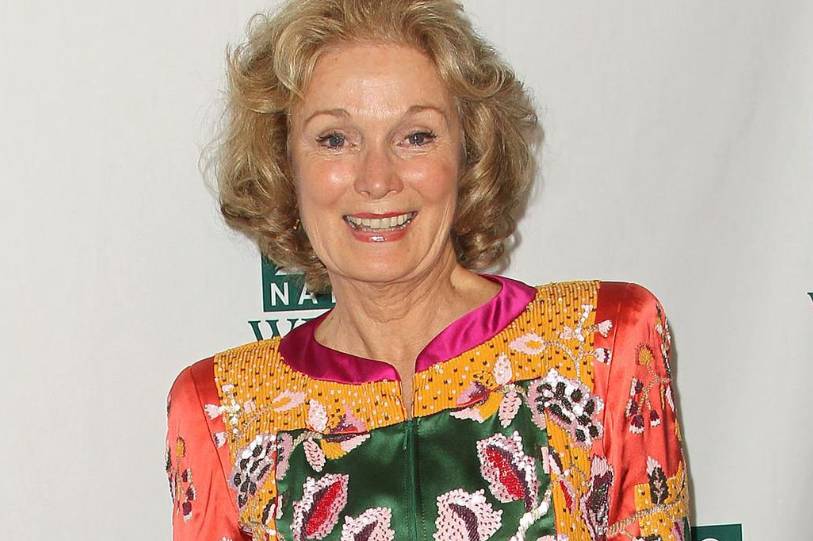Yvette Mimieux, the blond and blue-eyed actress of the 1960s films “Where the Boys Are,” “The Time Machine,” and “Light in the Piazza,” has died. She was 80 years old.
According to Michelle Bega, a family representative, Mimieux died of natural causes overnight Monday evening at her Los Angeles home.
Mimieux featured opposite Rod Taylor in 1960’s “The Time Machine,” based on H.G. Wells’ 1895 novel, as Weena, a member of the peaceful, blond-haired Eloi people in the year 800,000 who are unaware they are being produced as food by the underground Morlocks.
Mimieux rose to prominence in the 1960s as a result of this role and others that followed. She also appeared in the MGM adolescent film “Where the Boys Are” that same year, playing one of four college students on spring break in Florida. Distressed by a sexual attack in a motel, her character walks despondently into traffic.
“I suppose I had a soulful quality,” she told the Washington Post in 1979. “I was often cast as a wounded person, the ‘sensitive’ role.”
Yvette Carmen Mimieux was born to a French father and a Mexican mother in Los Angeles on Jan. 8, 1942. At the age of 15, she was “found” when publicist Jim Byron spotted her on a bridle path while flying over the Hollywood Hills in a helicopter. She was riding on horseback with a companion when Byron landed in front of them and handed her his card. Mimieux began her career as a model before landing a contract with MGM in 1959.
“The subtle approach is the thing,” Byron told The AP in 1961. “I think we’ve got another Garbo on our hands.”
And for a little period of time, Mimieux was everywhere. She was featured on the cover of Life magazine under the heading “Warmly Wistful Starlet.” Before she was 21, she directed eight films.
In 1962, Mimieux appeared in four films, including Vincent Minnelli’s “The Four Horsemen of the Apocalypse” and Guy Green’s “Light in the Piazza.” She portrayed Olivia de Havilland’s gorgeous, mentally retarded daughter in the latter. Clara, played by Mimieux, is pursued by a young Italian in Florence, played by George Hamilton, during a trip to Italy.
Mimieux starred as a bride in “Toys in the Attic” (1963), as an epileptic surfer in “Dr. Kildare” (1964), and as a bride in “Joy in the Morning” (1965). (1965). She was nominated for a Golden Globe three times, notably for her performance in Aaron Spelling’s short-lived ABC sitcom “The Most Deadly Game.” In the 1970s and 1980s, she acted in an increasing number of television films, some of which she co-wrote.
Mimieux co-wrote and co-produced “Obsessive Love,” a 1984 CBS television film about a crazy fan enamored with a soap opera star. Mimieux stated that she had to fight the network to have a woman play such a role. Her concept was inspired by John Hinckley’s fascination with Jodie Foster, but with reversed gender roles.
“The network felt people wouldn’t believe me as this woman. They said to me, ‘She’s a loner, and she shouldn’t be attractive,’” Mimieux told The New York Times in 1984. “I asked them, ‘Are you saying that only unattractive people can be crazy or lonely or have unfulfilled lives?’″
Mimieux said television was never the “love affair” she had with film. But she complained about the kinds of roles she was offered, and the one-dimensional type of women that were written. (One of her last notable movies was the 1979 Disney film “The Black Hole.”) So Mimieux retired from show business in her late 40s. Her interests — including archeology, painting and traveling — always went beyond fame. Off-screen, Mimieux was much more than the naïve starlet she was pigeonholed as.
“I decided I didn’t want to have a totally public life,” she told the Post. “When the fan magazines started wanting to take pictures of me making sandwiches for my husband, I said no.
“You know, there are tribes in Africa who believe that a camera steals a little part of your soul, and in a way I think that’s true about living your private life in public. It takes something away from your relationships, it cheapens them.”
Mimieux married Evan Harland Engber for the first time in 1959, but later divorced. From 1972 to 1985, she was married to film director Stanley Donen. In 1986, she married Howard F. Ruby, a real estate tycoon.
Credit: Wyomingnewsnow








